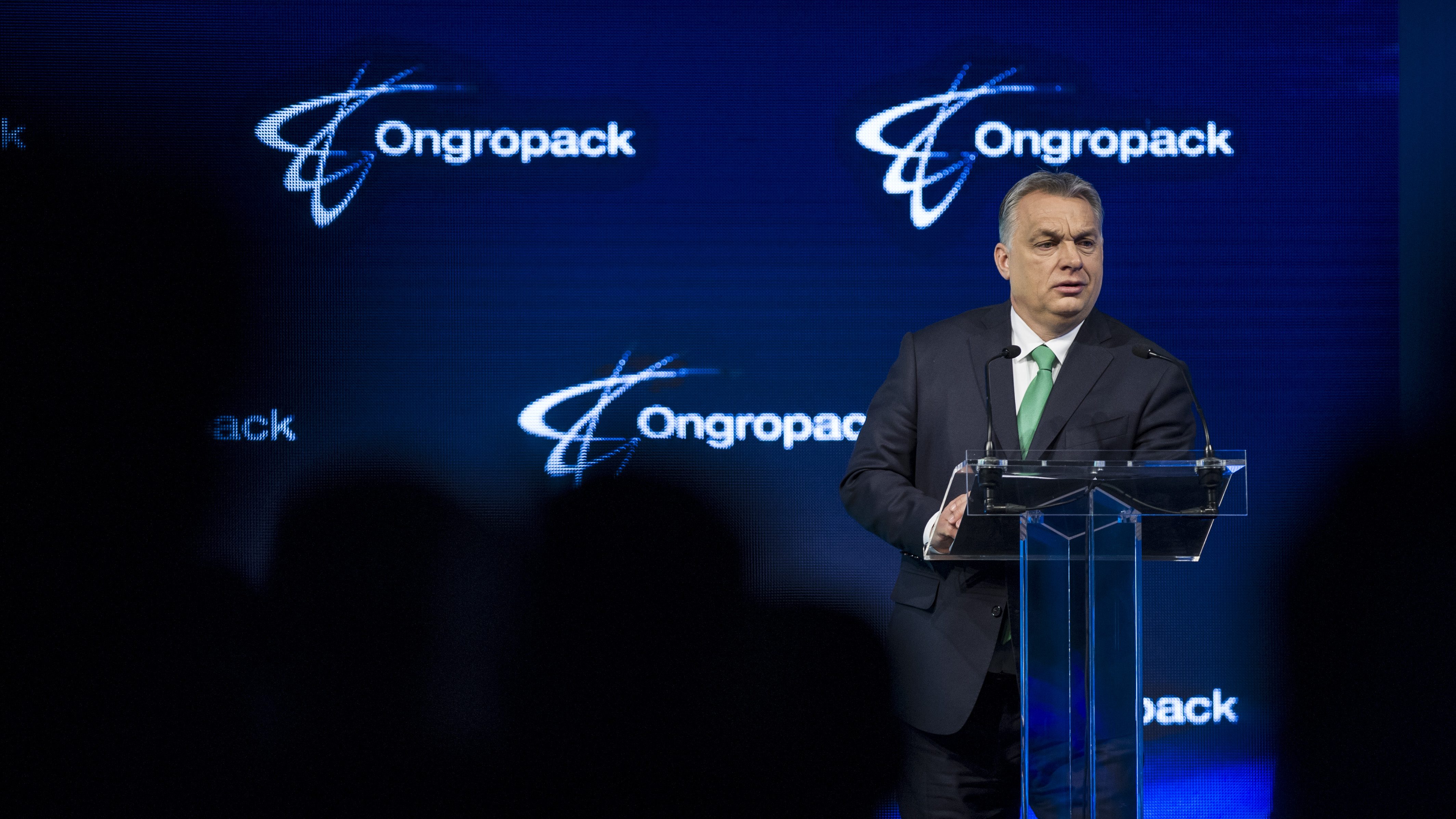
According to the Prime Minister, if those who want to turn Hungary into an immigrant country are allowed to form a government, then all existing economic resources will go towards the formation of that immigrant country.
Mr. Orbán stressed that “In that eventuality we will not have billions, hundreds of millions, or even tens of millions of forints to make available to Hungarian enterprises to create jobs for thousands or tens of thousands of Hungarians”.

The Prime Minister said he sees the reindustrialisation of Hungary moving forward at a good pace – at a rate that few would have thought possible eight years ago. In addition to this, he noted, nowadays the news is not only of investments by foreign multinational companies, as now there are increasing numbers of Hungarian enterprises which are capable of holding their ground in the international competition.
“Hungarian enterprises have never been as strong as they are now”, he declared. He went on to outline a few of the industrial development programmes of recent years, explaining that the goal is for Hungarian companies to be able to “move up a division”, meaning that “those who until now were featherweights can move up to middleweight […] and the middleweights can move up to be among the heavyweights”. According to Mr. Orbán, Hungary has every chance of achieving this, as the Government has launched the most important economic development programme since the fall of communism.
“Closest to our hearts are those investments that are realised by Hungarian people”, he said, adding that this latest investment in Szirmabesenyő also serves to develop the self-esteem of Hungarian enterprises.
Praising Ongropack’s project, Mr. Orbán said that he had always imagined Hungary’s future being made up of plants such as this: designed, built and operated by Hungarians, with Hungarians working in them, and owned by Hungarian families. He added that there should be a few thousand more of this kind of facility.

The Prime Minister also highlighted the fact that the North Borsod region is the country’s most rapidly developing area, and he firmly believes that in the years to come Northeast Hungary will be one of the country’s most rapidly developing regions. “If things continue like this, then within a few years you will be competing with centres of industry such as Győr and Kecskemét”, he said, promising government funding to help achieve this. He stressed that it is an economic and strategic goal and in the interests of all Hungary for the region to regain its strength and again become one of the country’s most important economic centres.
In closing the Prime Minister said that he would not like the Borsod region and the whole country to slip back to the position it started from at the time of the fall of communism.